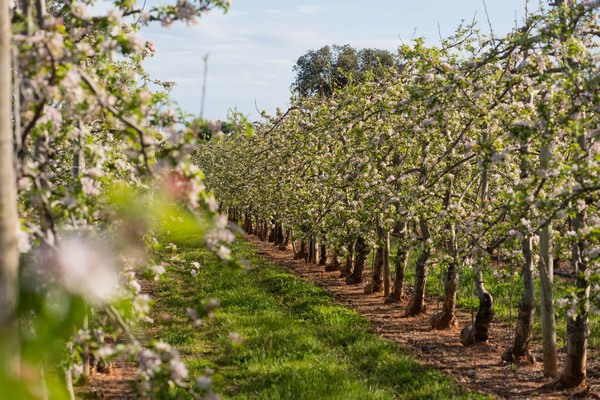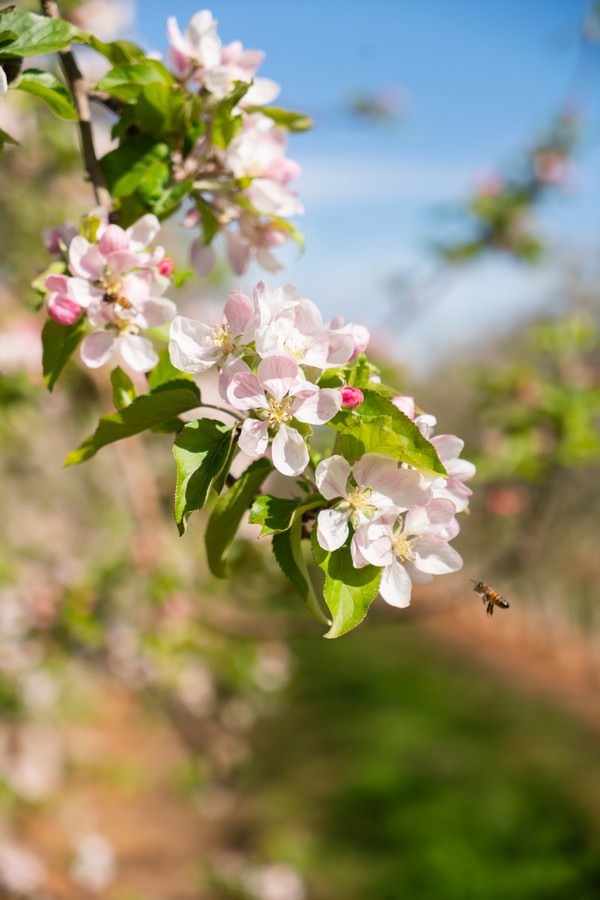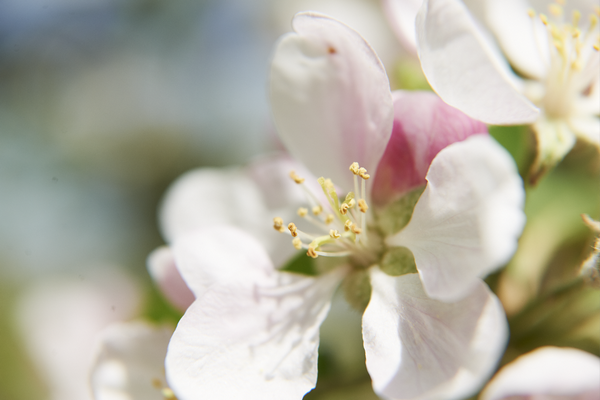Pink Lady has recently brought its Bee Pink program to the Spanish city of Seville to highlight the role of bees in the pollination, just at the time when the trees that will produce the next harvest of Pink Lady apples are in bloom in the fields of Lleida and Girona.

"Bees play an extremely important role for growers: they ensure that we can have fruit," said Joan Serentil, while showing a picture of a field in a fruit-growing region of China, where the loss of bees is forcing workers to pollinate the flowers in each orchard by hand, one by one, climbing the trees. "In fact, 85% of our food depends on bees and, well aware of this, about 6 years ago, the Pink Lady Association created the Bee Pink program. The idea was to raise awareness among our growers about the need to protect and care for bees."

The varieties Cripps Pink, Rosy Glow, and the most recent addition to the Pink Lady brand, the Sekzie, are the first apples to flower, so this period is very important for the 70 Pink Lady growers working in Lleida -where there are about 150 hectares- and Girona -which has 200 hectares, bringing the total in the country to 350 hectares-, who produce them resorting only to environmentally-friendly cultivation methods.
"A good pollination will help us not only obtain higher volumes, but also fruit of a good quality and good calibers. That's why there needs to be a perfect synergy between the producer and the beekeeper, so that all treatments carried out in their plots can be interrupted. This year there has been an extraordinary flowering. This follows three somewhat weak harvests because of the impact of frosts and adverse weather conditions, but we expect higher volumes next season, with maximum pollination thanks to the use of bees."
"The survival of bees is crucially important"
The presence of bees, so necessary for agriculture, shows a worrying decline. As the European Commission itself has warned, "Europe and the world are facing a severe loss of wild pollinators. The population of around one in three species of bees, butterflies and hoverflies is declining." Moreover, "one in ten species of bees and butterflies and one in three species of hoverflies are at risk of extinction." And all this despite the fact that, "in the EU, animal pollination makes it possible to produce agricultural crops worth at least €5 billion a year," which also ensures food security.
"For years now, we have been identifying causes for the decline of the populations of all pollinators, including bees," said Pablo Osborne, agricultural technical engineer and member of the Andalusian Permapiculture Association, a non-profit organization that carries out free rescues of wild honeybee hives. "The main factor is the use of insecticides, pesticides and herbicides," but not the only one. "Other drawbacks include the use of seeds treated with phytosanitary products, which contain systemic contaminants that gradually intoxicate the bees; the cultivation of transgenic crops, such as corn, which have toxins included in their own genetic chain; the use of 5G, or climate change."

During the meeting, Pablo called on the Public Administrations to invest more resources in the protection of these insects, whose survival "is decisive, because without them, we will run out of food."
"Electricity companies have been allowed to stand above everything".
Pollination is just as crucial as the water supply for apple growers in Lleida, a region that has been severely hit by the closure of one of the country's major irrigation canals: the Urgell canal.
"Our river basins are among the most regulated in all of Spain, with the rivers that flow down from the Pyrenees to the Plana de Lleida being among those carrying the most water, but all the dams have turbines to produce electricity," said Joan. "Faced with the rising price of electricity due to the war in Ukraine, electricity companies have been producing more energy than they should have, so the reservoirs have been depleted while waiting for rains that have not come."
"Fortunately, the Pink Lady is not at risk, as the plantations are located in an area where the canals have provided enough water to meet the irrigation needs this campaign, but there are almost 10,000 hectares of fruit trees affected. This water should be devoted firstly to human consumption, then to livestock and thirdly to agriculture; but, unfortunately, there has been a moment in which electricity companies have been allowed to stand above everything."
 For more information:
For more information:
Pink Lady
www.manzana-pinklady.com










